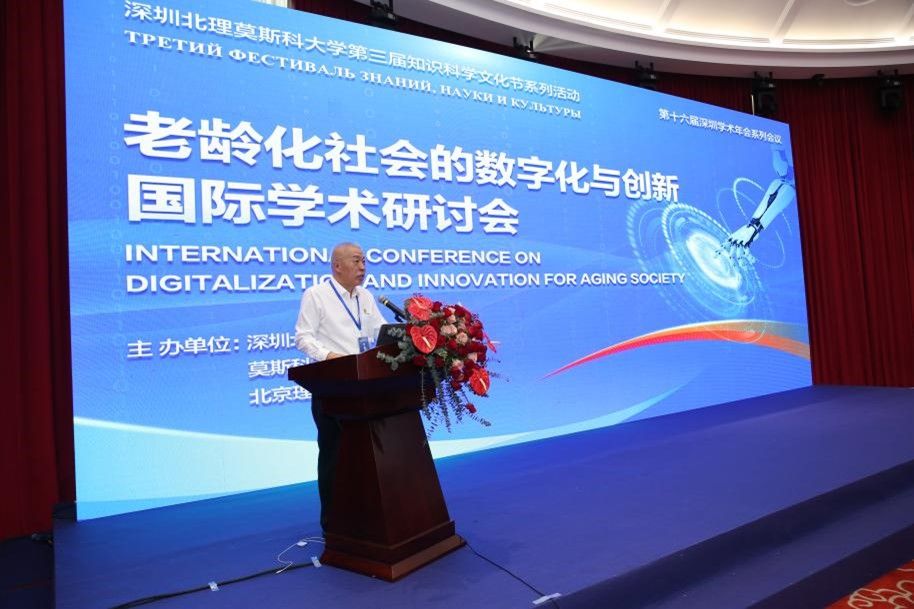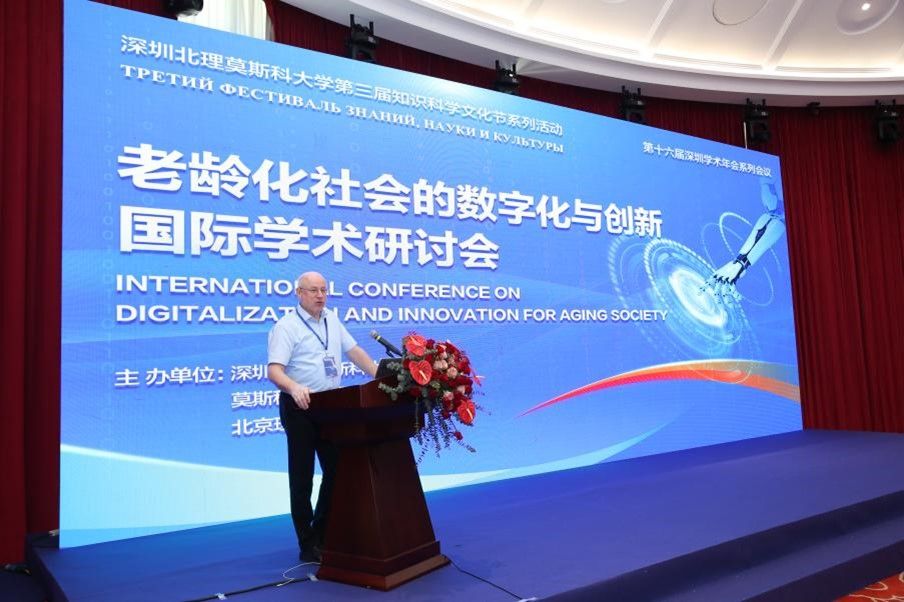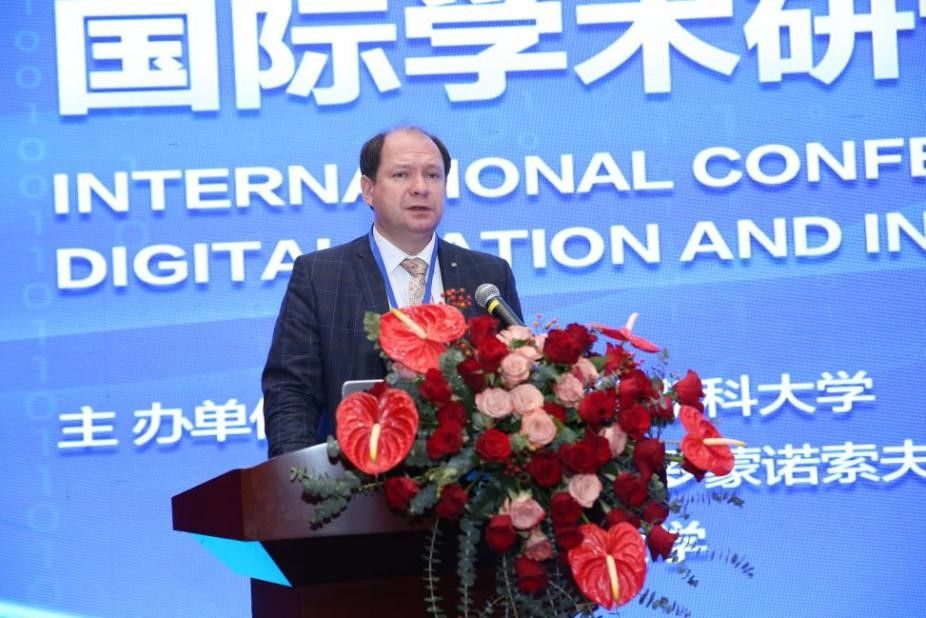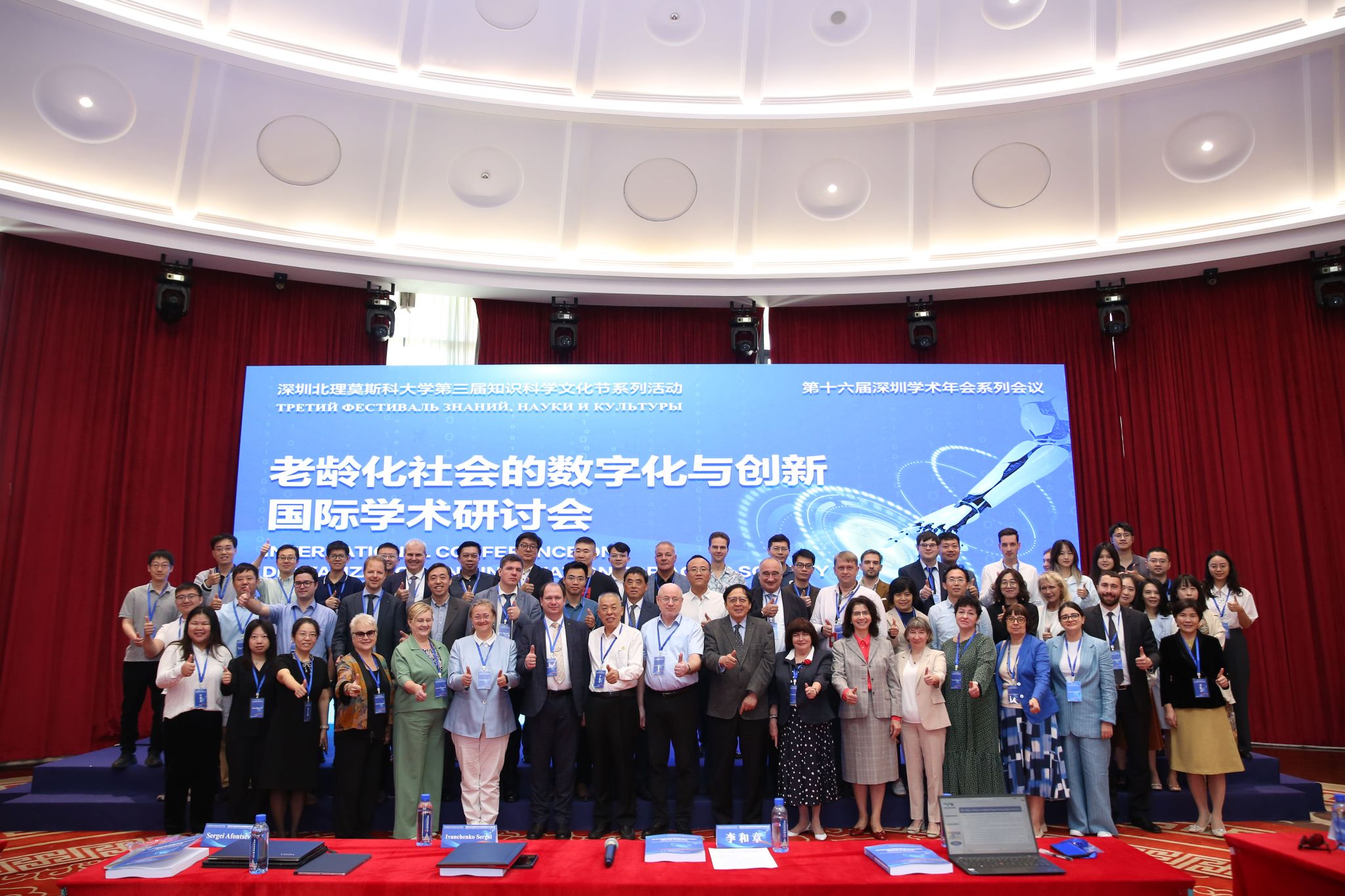From November 4 to 6, the Economics Department of Shenzhen MSU-BIT University, in collaboration with Lomonosov Moscow State University and Beijing Institute of Technology, hosted the “Digitalization and Innovation in an Aging Society” International Academic Symposium. Over 60 experts and scholars from Russia, Italy, Germany, South Korea, as well as from prestigious universities within China, such as Beijing Institute of Technology, Tsinghua University, South China University of Technology, and Southern University of Science and Technology, participated in this event. The symposium aimed to explore innovative solutions to societal aging and to discuss effective ways to promote the “silver economy” from a global perspective, contributing insights and strengths toward a happy and prosperous future for humanity.
The opening ceremony was chaired by Professor Meng Fanchen, Chinese Director of Shenzhen MSU-BIT University. Leaders from various departments, including the President’s Office, Academic Affairs, Research Department, International Cooperation Department, and Student Affairs Department, attended the ceremony. Opening remarks were delivered by Professor Li Hezhang, President of Shenzhen MSU-BIT University; Professor Ivantsenko, First Vice President; and Corresponding Member of the Russian Academy of Sciences, Professor Afantsev from Moscow State University’s Economics Department.
In his speech, President Li Hezhang welcomed domestic and international experts and scholars on behalf of Shenzhen MSU-BIT University, expressing gratitude to those who support the university’s academic exchanges. He emphasized that the simultaneous progression of global population aging and industrial digitalization makes technological innovation in the digital economy a strategic response to aging populations. He noted the significant relevance of this symposium’s topics, highlighting the close connection between digitalization and university development, with universities poised to become testing grounds and innovation hubs for the integration of digital technology with teaching and research. President Li expressed hope that the symposium would enhance academic exchange, cooperation, and innovation between Shenzhen MSU-BIT University and other institutions domestically and internationally, advancing research on issues related to the silver and digital economies.

Professor Ivanchenko, First Vice President, pointed out that this symposium was part of the Third Knowledge, Science, and Culture Festival, an academic event aimed at exploring digital and innovative solutions for an aging society. This festival has received significant attention and support from the governments and societies of both China and Russia. The “Knowledge, Science, and Culture Festival” has become an important platform for promoting Sino-Russian cultural exchange and scientific cooperation. Professor Ivantsenko expressed confidence that this international symposium would serve as a major step in building a united scientific community and contribute to the welfare of people in both countries and globally.

In his address, Academician Afontsev expressed sincere gratitude for the invitation from Shenzhen MSU-BIT University, stressing the importance of enhancing academic exchanges and cooperation between Russian and Chinese scholars. He reviewed the collaboration between MSU, BIT, and Shenzhen MSU-BIT University in conducting in-depth discussions on international economic cooperation against the backdrop of emerging global changes. He highlighted that with the challenges posed by aging populations worldwide in the digital economy era, scholars from Russia, China, and other countries gathered at this symposium to discuss innovative solutions to aging, underscoring the importance of international cooperation in this field.

The symposium featured keynote addresses by distinguished scholars, including Professor Afantsev, Corresponding Member of the Russian Academy of Sciences; Professor Mu Rongping, Director of the Innovation Development Research Center at the Chinese Academy of Sciences; Professor Zhang Bohui, Executive Dean of the School of Management and Economics at CUHK-Shenzhen; Professor Lin Jianwu of Tsinghua University’s School of Economics and Management (Shenzhen); Dr. Litz from the German Hauck Eurasia Foundation; and Professor Niu Baozhuang from South China University of Technology’s School of Management. The event included eight sub-forums focusing on various topics, such as policies and strategies for aging societies, industrial digital innovation and sustainable development, trends in global population aging and the silver economy, enterprise and investment in the digital economy, business and family decision-making in aging and digital contexts, challenges and ethical issues in digital innovation, the role of new technologies in shaping economic opportunities and challenges, and the study of complex issues in the digital era. Experts shared theoretical and empirical research findings, exchanging views and recommendations on digital innovation within an aging society. Discussions on the vast potential of the silver economy and the exploration of digital innovation as a new development path in aging societies were key highlights of the symposium.

After the symposium, participants visited Shenzhen Mindray Bio-Medical Electronics Co., Ltd. to gain further insight into the development of internationalized companies in Shenzhen. Ms. Xie Yin, Director of International Marketing, and Mr. Ding Pengyu, Product Manager, warmly welcomed the representatives and provided detailed introductions to the company’s product system, operational model, research development, and digital strategy layout.





